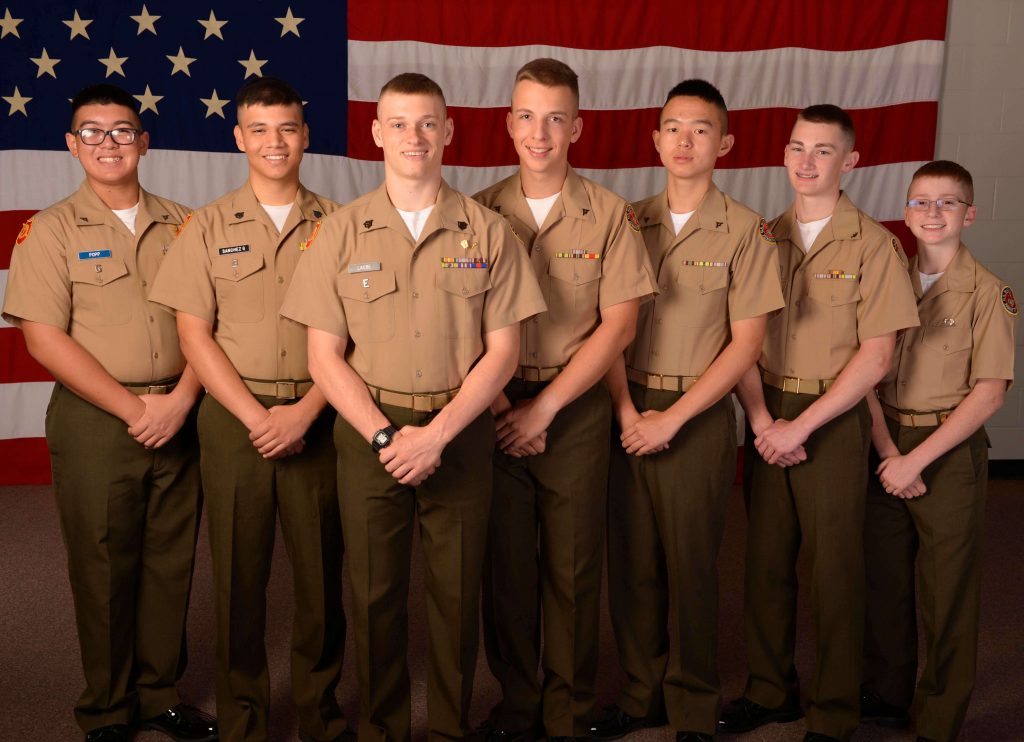I think you will agree when I say:
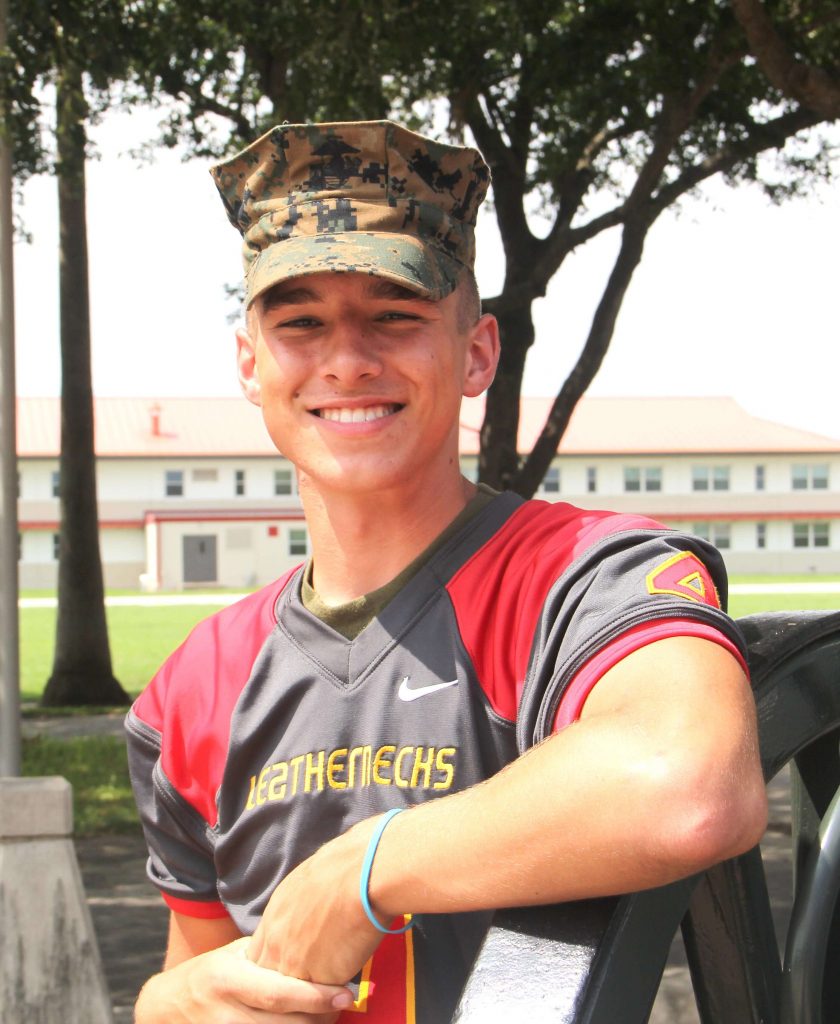
Raising teens today is difficult and making them interested in the value of their own education can be a herculean task. For many teens, spending time studying and focusing on realistic goals is secondary to the immediate satisfaction of computer games and their social media accounts.
How do you get a teen to focus on what is truly important – their character and education? What can you do to help them develop the maturity, independence, self-confidence and team skills required to be successful in today’s world?
It turns out, you can dramatically change a teen’s perspective (and prospects) by challenging them to live up to high expectations.
In this article, we will discover how military schools have been helping teens redefine their lives and awaken their potential.
What is the real story about military schools?
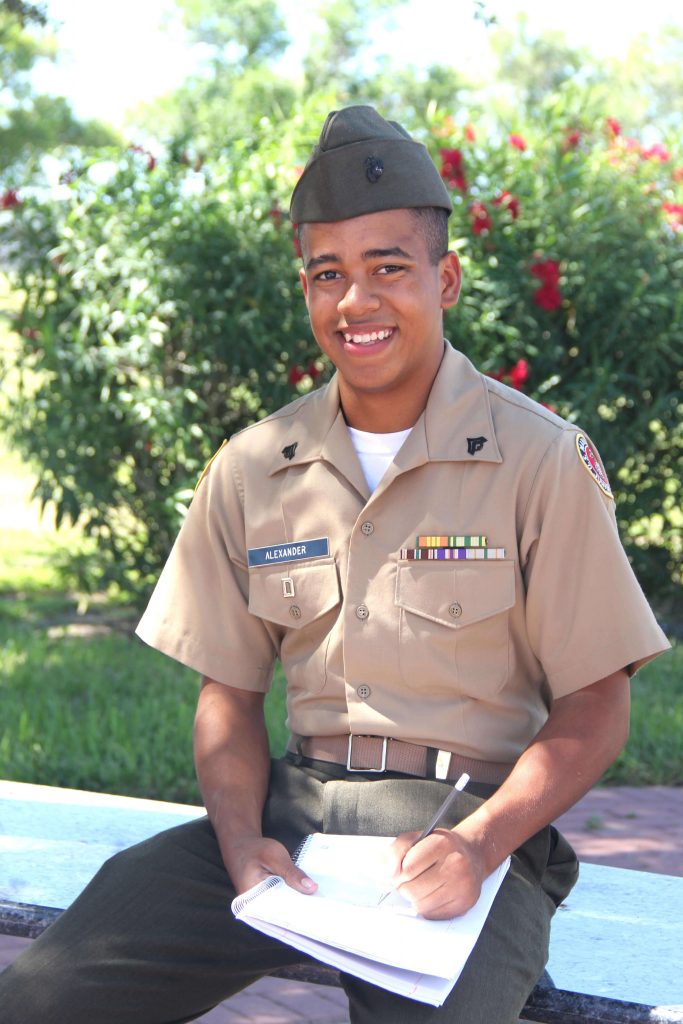
Contrary to popular opinion, military schools are not reform schools where kids in trouble with the law are sent to be straightened out. In fact, at our school, those individuals are quickly weeded from the applicant pool. Most military school students are normal teens each with a unique reason for attending. There are a few broad categories of students. Some are the classic underachiever – smart but not getting good grades. Others need a change in their environment either because of stress in the home, toxic friends, or a negative culture at their current school. Rarer, but present, are those students who desire a military career and see military school as a stepping stone toward acceptance to one of the military academies like West Point. All have one thing in common, they (or their parents) recognized that they could be better or do better.
What are the primary benefits of a military school?
In terms of education, military schools are not that different from traditional high schools. The curriculum and courses are the same. The teachers are certified by the state. The schools are accredited by the same regional agencies. What differs are the institutional values and culture. The military ethos enshrines character, tradition, duty, self-discipline, selflessness, hard work, and the development of the individual. Private military schools take those values and apply them to the school setting. Student life centers upon high expectations, teamwork, and the achievement of goals which then drives the individual’s development.
What do military schools focus upon?
Character building – This includes honesty, loyalty, accountability, and many other attributes that are important in establishing individual trust.
Elimination of learning distractions – Access to cell phones, social media, TV, and other distractions may be highly curtailed during the school week when a student’s attention should be focused on their studies.
Development of teamwork and leadership skills – Being able to work with or lead others is important in most professions.
Enhance social and emotional skills – Interacting with groups of people in a constructive way develops the ability to manage one’s own emotions and those of others which then improves social behavior, decreases conduct issues, lowers emotional stress, and improves academic performance.
A structured day – A daily routine helps to build healthy habits. It reinforces good time management skills and ensures that important tasks are accomplished – think hygiene, studying, fitness, and accountability.
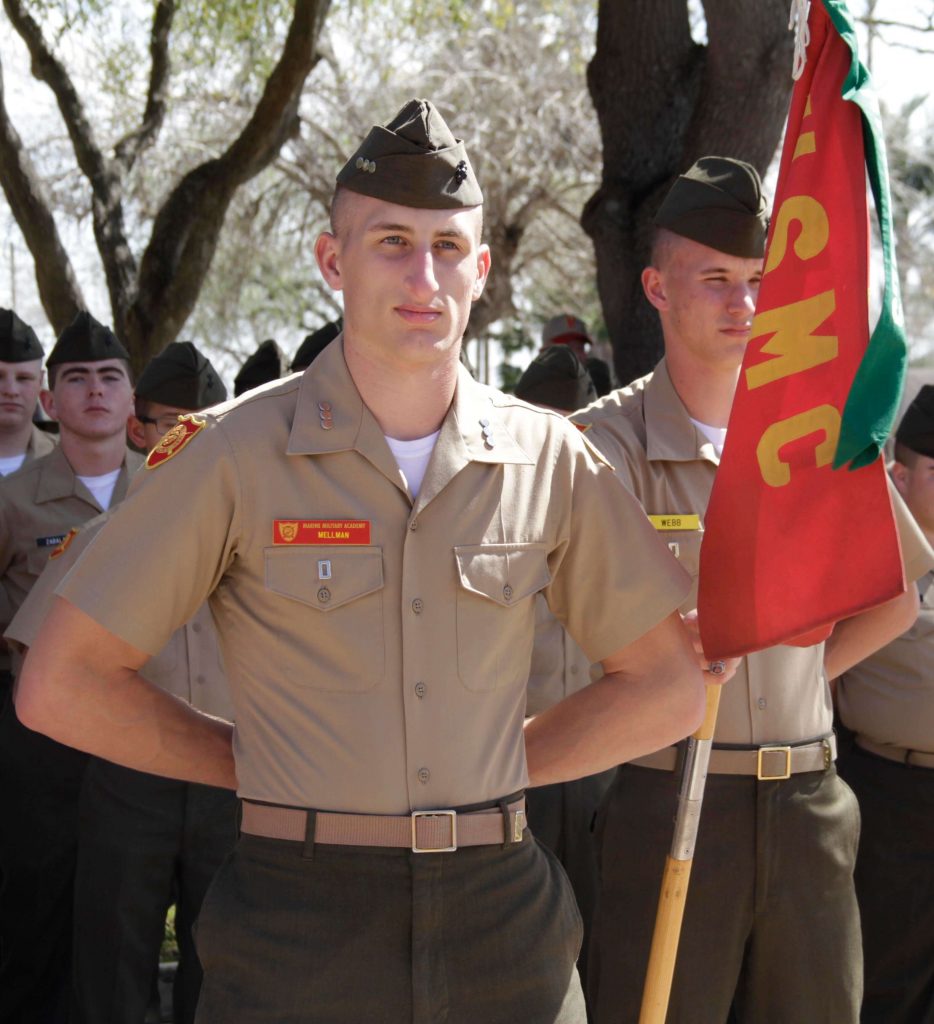
Instilling self-discipline – Success is built upon doing what needs to be accomplished when it needs to be accomplished. Having this skill is necessary for both learning and achieving goals.
Mandatory participation in extracurricular activities – This allows students to improve their social skills, pursue interests, and think beyond themselves.
Physical fitness – Building one’s fitness has profound physical and mental health benefits.
College preparation – Completing a rigorous curriculum is the single most important academic element in preparing one’s self for college.
Establishing Camaraderie – Humans are a social being and having strong friendships offers both support and enjoyment. This underlies group cohesion and the ability to successfully work together.
Instill ambition and direction in life – Having a dream or direction can give meaning to life and provide reasons to do the things to propel us in the right direction.
Building self-confidence by earning it – Confidence is contagious and is often the starting point on the journey toward a goal. You must be able to face your fears and have faith in yourself. Confidence is built through successfully negotiating challenges.
Developing tenacity and grit – This underlies commitment and the will to overcome obstacles to achieve a goal. Small failures often underlie personal growth and future achievement.
How do Military Schools turn teens into successful students?
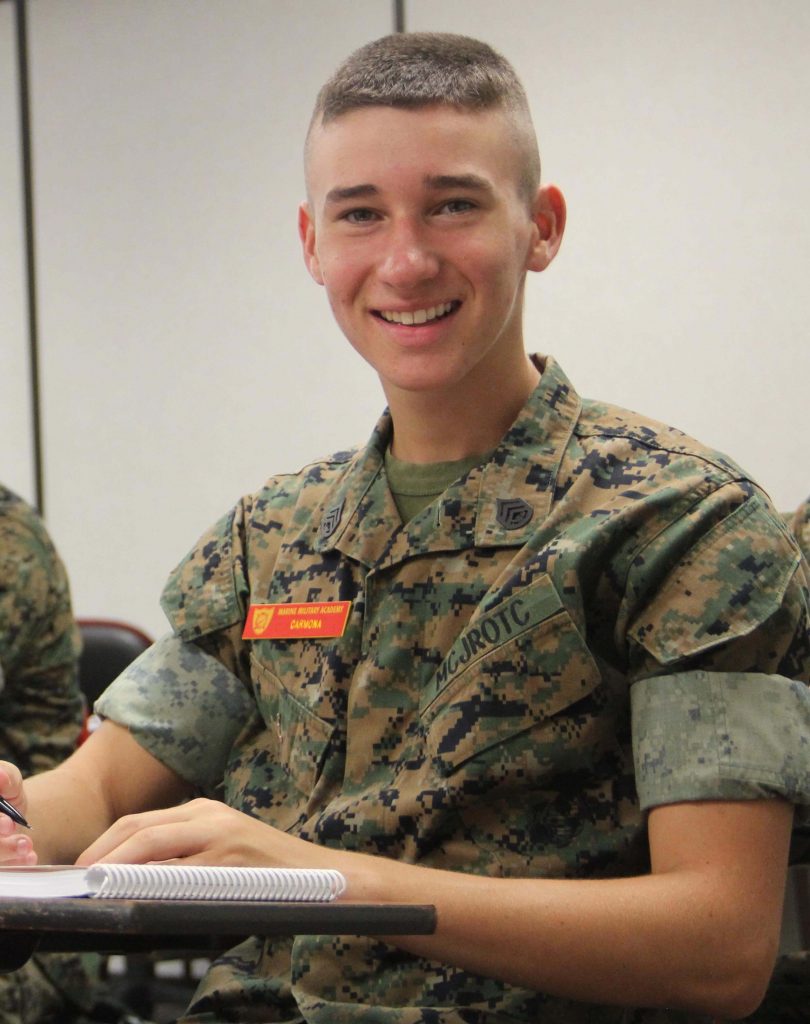
A student’s transformation does not depend upon draconian rules or hazing students into submission. Instead, the focus is on creating a culture that follows traditional values, creates positive peer pressure, and expects achievement. Students who suffered academically because of poor study habits or who have lost interest in school find themselves in an environment with a clear direction and rewards that motivate improvement. Success is celebrated, and failure is identified and remediated. The goal is to produce a capable, confident, hardworking, well-rounded citizen of good character.
What do military schools do that can’t be done at home?
Students are mentored by adults who have extensive and successful military leadership experience. They are unyielding in their expectations and the consequences for poor performance are well understood.
Little is received that is not first earned. Personal status is gained through real achievements and not doled out superficially. Recognition and advancement are a product of an individual’s hard work and achievement in academics, sports, or leadership activities.
Each day is structured to ensure required tasks are accomplished (assigned duties (chores), meals, exercise, classes, sports, study time, and bedtime) and to teach responsibility.
A student can’t “slip between the cracks” or hide in the crowd. Small schools and small class sizes translate into individualized attention.
What types of teens benefit most by attending a military school?
Not all students are a good fit for military school. Temperament and a willingness to adapt to a more regiment lifestyle are important. Those who recognize the value of self-improvement fair the best, but this is not a necessary quality. Students who are initially skeptical will often change their minds.
Because of the nature of military schools, students with one or more of the following attributes may find such schools helpful:
- Low self-confidence
- Poor self-discipline as reflected in study habits and grades
- Academic underachievers
- Those who need more individual attention
- Those who enjoy a close-knit group environment
- Those never given an opportunity to participate in sports
- Students in need of a rigorous college-prep curriculum
- Individuals who need structure (a regimented schedule)
- Those who are interested in the military lifestyle or career
Who should not attend military school?
Military schools are not for everyone. Those who are struggling with profound emotional or behavioral problems are not likely a good match. Military schools are not typically staffed to deal with issues such as substance abuse, self-abusive, suicidal thoughts/actions, or learning disabilities. When speaking with an admission counselor, be sure that you communicate any special needs your child may have and be sure that the school can meet those needs.
What are the military school options?
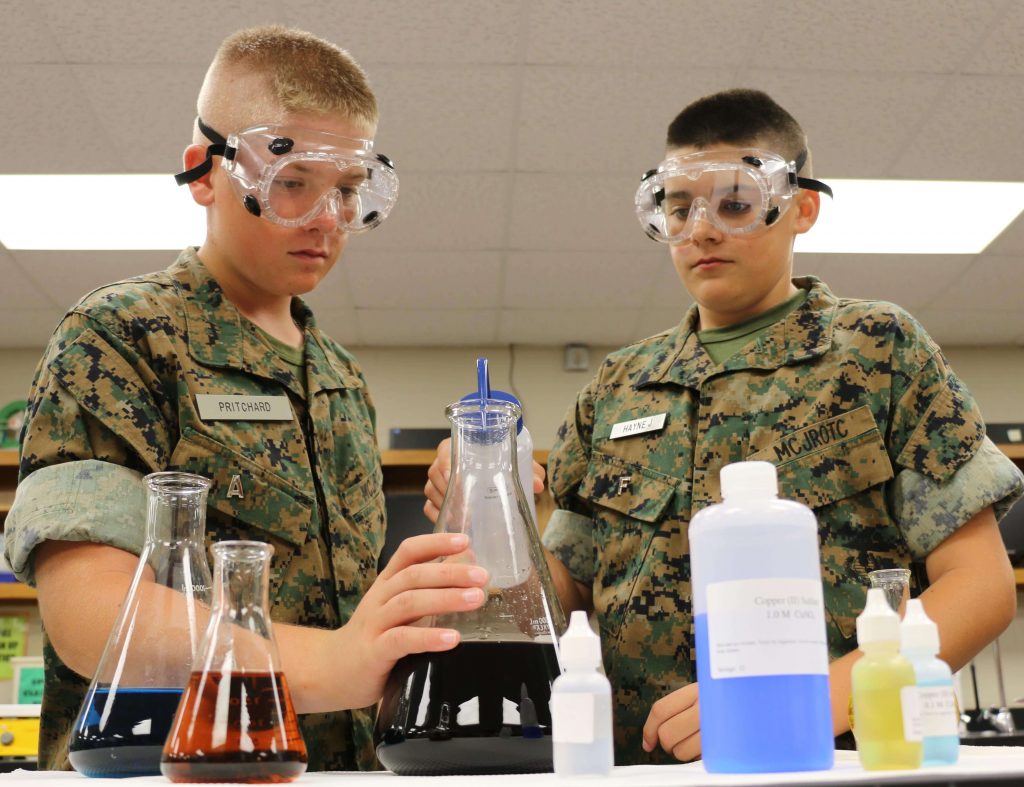
There are roughly 33 private and 22 public military schools in the United States. Each is unique. Some of the more obvious differences include:
Co-ed vs Single-Sex – Single-sex schools can help to eliminate the distractions and temptations of the opposite sex.
Day vs Boarding – Day schools allows students to live at home while boarding schools require students to live on campus. Boarding schools are more likely to affect changes in habits.
Private vs Public – Public schools are funded by tax dollars and serve students of the local community. Private school funding is a function of tuition and donations. They accept students from across the country and around the world. Private schools have more flexibility in terms of curriculum and rules.
Culture – Some military schools are more “military” than others. The organization and staffing of the school can be telling. Indications include:
- Key administrative positions are staffed by former military personnel
- Dorm advisors are former military personnel
- Students wear uniforms all the time
- Military culture is extensively woven into a student’s daily life.
Below is a list of military school listed by state:
Alabama – AL
Marion Military Institute
Lyman Ward Military Academy
California – CA
Oakland Military Institute
North Valley Military Institute
St. Catherine’s Academy
Army Navy Academy
Florida – FL
Admiral Farragut Academy
Florida Preparatory Academy
Georgia
Riverside Military Academy
Indiana
Culver Academies
New Mexico – NM
New Mexico Military Institute
New York – NY
New York Military Academy
North Carolina – NC
Oak Ridge Military Academy
Great lists of military schools can also be found on Wikipedia and Military School USA .
Pennsylvania – PA
Valley Forge Military Academy and College
Carson Long Military Academy
South Carolina – SC
Camden Military Academy
Texas – TX
Texas Military Institute Episcopal
Marine Military Academy
Utah – UT
Utah Military Academy
Virginia – VA
Hargrave Military Academy
Fishburne Military School
Fork Union Military Academy
Massanutten Military Academy
Randolph-Macon Academy
Benedictine College Preparatory
Wisconsin – WI
St. John’s Northwestern Military Academy
Canada
Robert Land Academy
Can I afford military school?
A private school can be expensive. In 2018, the average tuition of a private boarding school was $54,000 (2018 – boarding school review) per year. Tuition can run as high as $89,000 year. The costs between schools can vary widely so it pays to do your research. Don’t place too much stock in the tuition you find using online school guides they are usually old figures. Instead, visit each school’s tuition and fees page or call the school.
Realize, that beyond tuition there may be additional costs associated with private schools including books, uniforms, weekly allowances, and travel to and from school. Be sure to find out what additional expenses might be involved.
How can you pay for a private school?
Below are the options you might consider when formulating how to pay for private school.
School-offered scholarships – Many schools have scholarship programs that can make the cost of tuition more manageable. These programs can be either need or merit-based.
K-12 student scholarship program – There are organizations that provide money to help pay for K-12 education. The three largest programs are the Children’s Scholarship Fund, Jack Kent Cooke Foundation, and A Better Chance.
Coverdell Education Savings Account – The after-tax savings account is like a Roth IRA. It allows you to save for future elementary, secondary, and college expenses. Your money will grow tax-deferred and withdrawals are tax-free for qualified education expenses such as tuition, books, and uniforms. For more information, consult the IRS’s Coverdell Education Savings Accounts page.
Tuition Payment Plans – Most schools also offer tuition payment plans to spread your payments over the course of a year, so you don’t have to come up with the full tuition amount at once.
State vouchers – These programs reimburse parents the money that would have otherwise been used to educate their child at a public school. The amount of money differs by state and may not cover the full tuition cost of the private school. Tax-credits may also be available. There are currently (2019) fourteen states that have voucher programs. A list of these states and requirements can be found on the National Conference of State Legislatures website: School Voucher Laws: State-By-State Comparison.
Loans – As a last resort, you might consider educational loans from private lenders. Check out the Sallie Mae K-12 Family Education Loan which allows you to borrow up to 100% of the cost of private school education. For additional information concerning loans check out the College Scholarships.org article “private high school loans.”
Are you asking the tough questions?
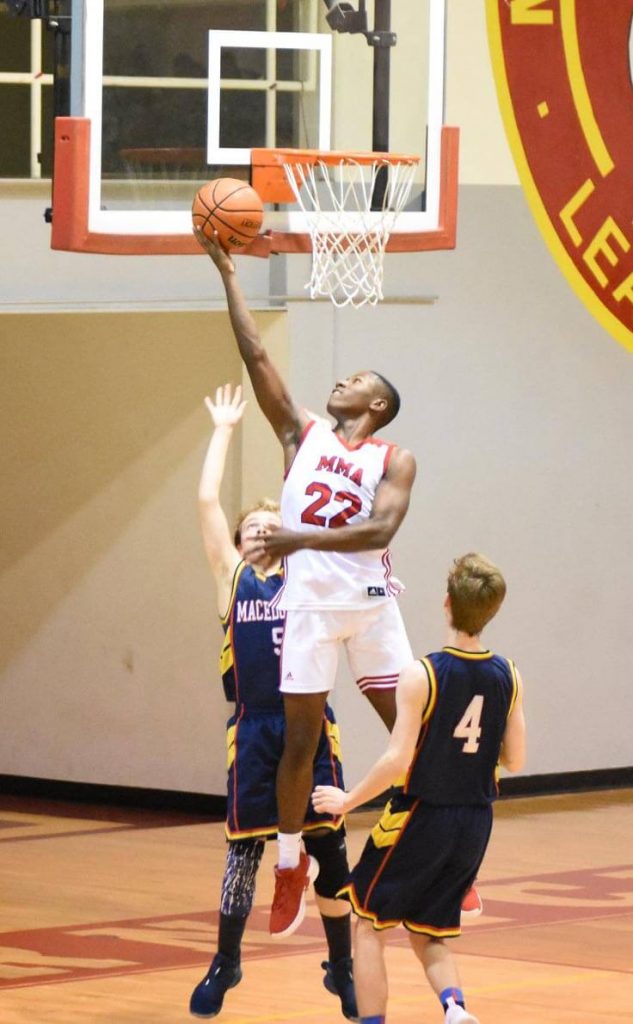
Be sure to research each of the schools that interest you. Call them and ask questions. If a school makes your “short list” plan a visit so you can see first hand the facilities and the individuals who will be taking care of your child. If you read school reviews online do so with skepticism and consider the source. Many are wildly exaggerated.
Here are a few questions you should ask:
- What is your policy on smoking, drugs, and alcohol?
- Is your school accredited and by whom?
- What are your graduation requirements?
- What extra-curricular activities are available to students?
- What advanced courses are available?
- To which colleges do students usually matriculate?
- Are college and career counseling available?
- What qualifications must your teachers meet?
- What is a student’s typical day?
- What do students do on the weekends?
- How do you identify and help students who are not meeting academic expectations?
For more great questions read the article: Questions to ask private schools.
Learn more…
To learn more about the benefits of Military school read:
Marine Military Academy is an all-boys military boarding school located in Harlingen, Texas. If you think military school might be a good choice for you please contact us and talk with one of our counselors – Ph. 956-423-6006.
